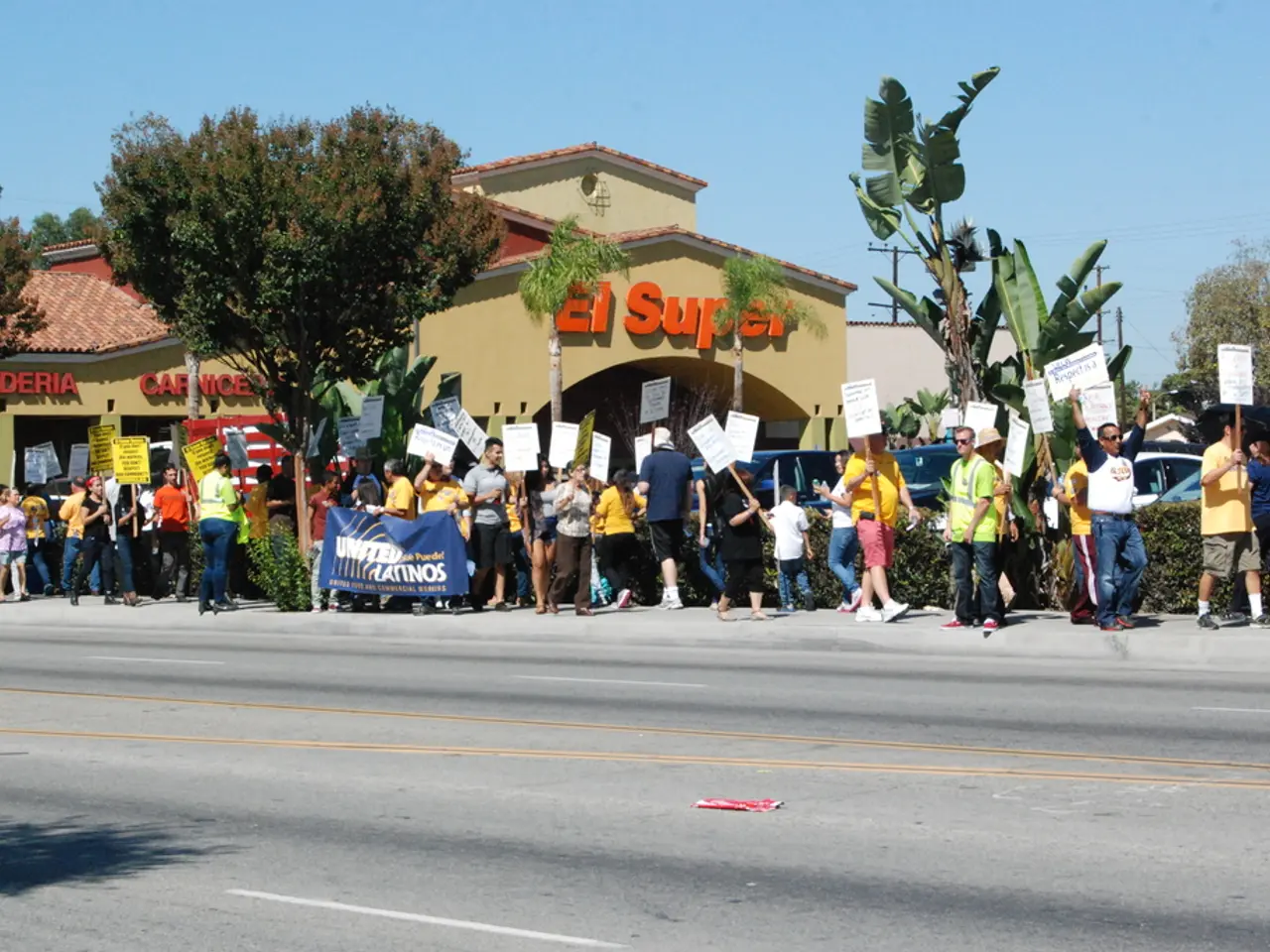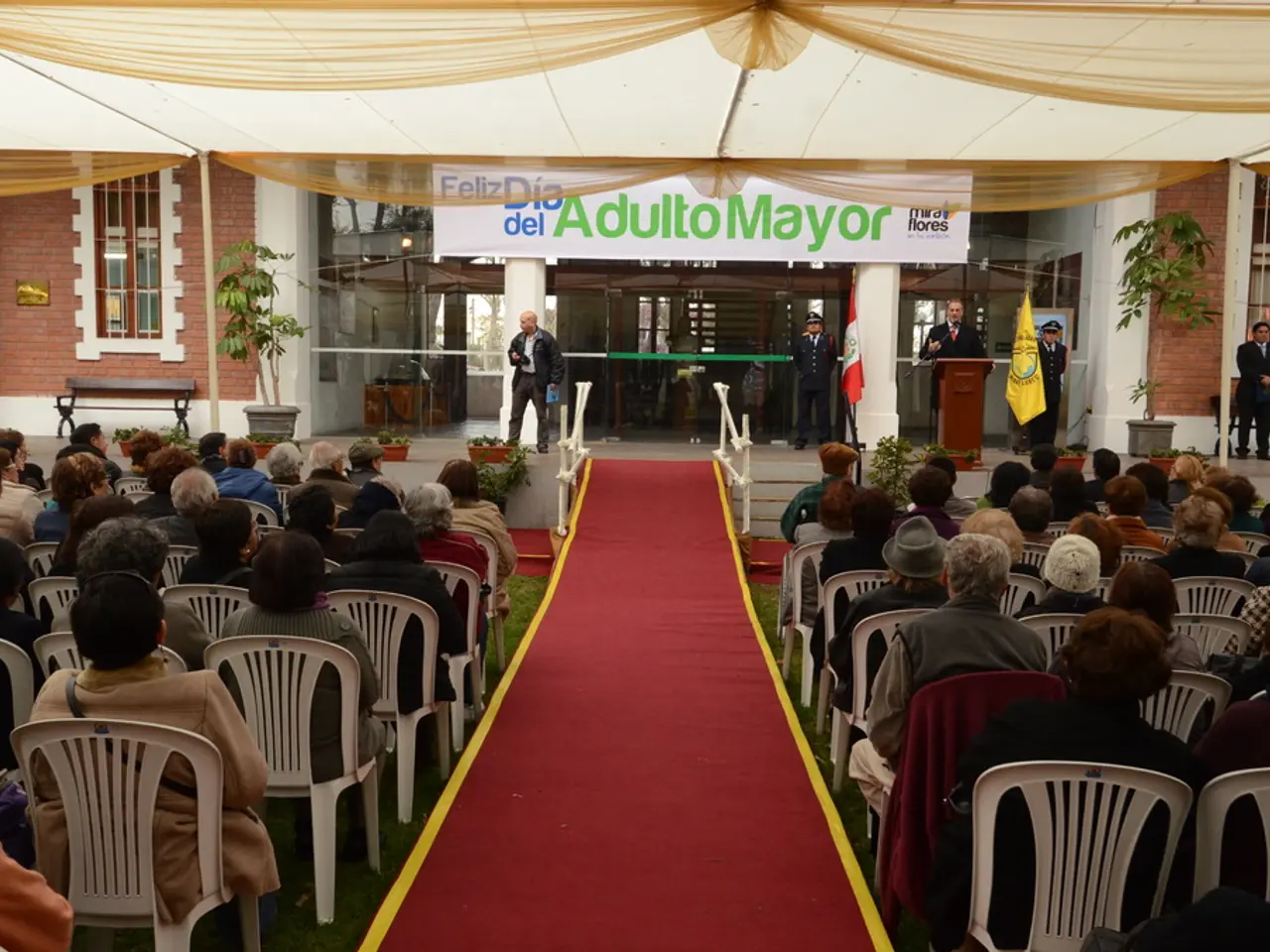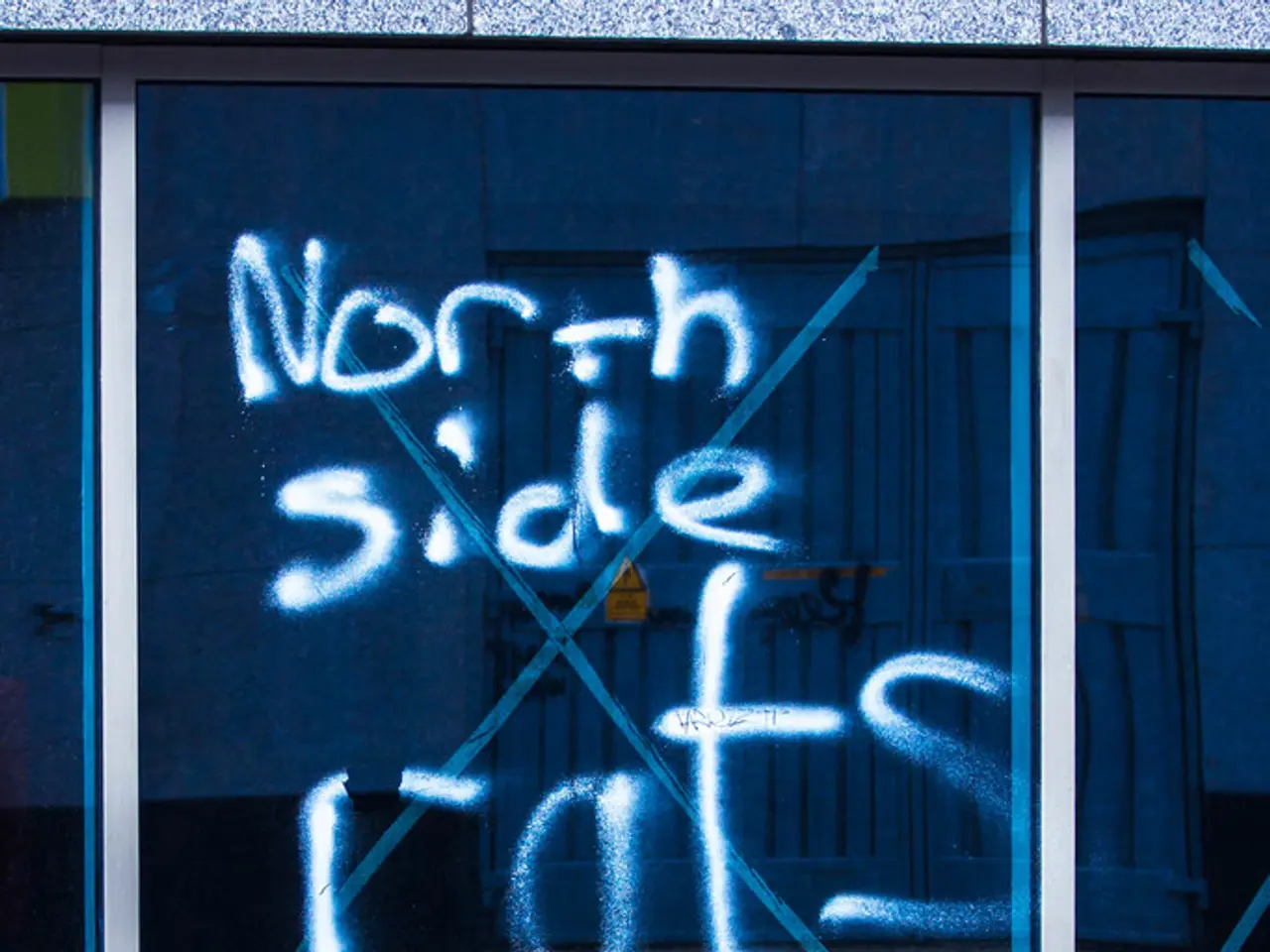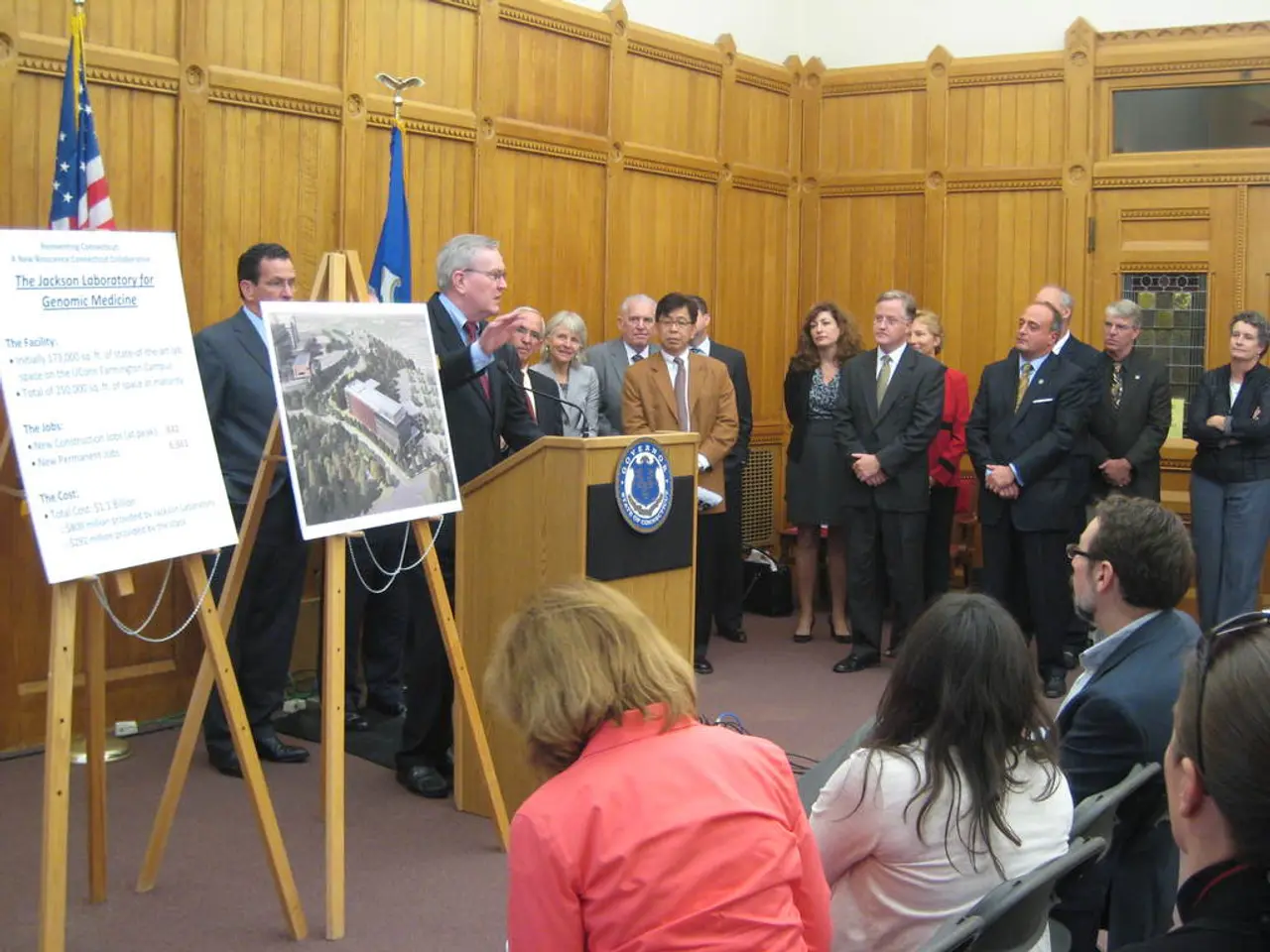Republiканските штрати се продават: републиканците упглеждат штрата, докато демократите го указват, че са големи розcounterувања на Медикайд
In a divisive political landscape, the recently passed $4.5 trillion tax and policy bill by Republicans has sparked intense debate between the two parties. The bill, hailed by Republicans as a major achievement, is criticised by Democrats for its potential impact on social programs and long-term fiscal risks.
The bill, often referred to as the "big, beautiful bill" by its supporters, emphasises ramped-up spending on border security, defence, and energy production, along with the extension of trillions of dollars in tax cuts aimed at stimulating economic growth. Senate Majority Leader John Thune called the passage an "incredible victory for the American people," underscoring the GOP's message of strong national security and economic benefits.
However, Democrats focus their criticism on the bill's consequences for social programs. They argue that cuts in Medicaid, health care, and nutrition programs will harm vulnerable populations and exacerbate inequality. The bill is estimated to add $3.4 trillion to the deficit over the next decade, as per the nonpartisan Congressional Budget Office.
The dispute also involves political messaging strategies. Republicans are selling the bill as a comprehensive package that strengthens national priorities and delivers tax relief, while Democrats are warning that the bill prioritises tax cuts for the wealthy and defence spending at the expense of essential social safety nets.
Notable figures within the Republican party have expressed concern over the bill's Medicaid provisions. Senator Thom Tillis, R-N.C., criticised the bill's potential impact on his home state, leading to criticism and a threat of a primary challenge from President Trump.
The bill includes new provisions such as no taxes on tips for some workers and a 'senior deduction' of $6,000 for older Americans making up to $75,000 annually. The bill's passage was celebrated by President Trump during a rally in Iowa, with Trump suggesting Republicans can use the bill to their advantage in the midterms, stating that not one Democrat voted for the bill.
However, public opinion appears to be divided. According to a June poll from Quinnipiac University, 55% of voters opposed the bill, while 29% supported it. A mid-June Fox News poll found that 59% of registered voters oppose the bill, while 38% favor it. Furthermore, half of voters in the poll thought the bill would hurt them and their families.
The political landscape has seen some unusual alliances, with Democrats offering support for some of the bill's provisions, such as the new provision for no taxes on tips. In contrast, some Democrats who largely opposed Trump's legislative agenda eight years ago have expressed support for certain policies.
The bill's impact on social programs, particularly Medicaid and food stamps, has become a key point of contention. Democratic strategist Dan Sena believes it's important for Democrats to define the impact of Medicaid cuts and the long-term effects of the bill's debt. The bill includes work requirements for safety net programs, a move that has sparked debate among registered voters, with 47% in favour and 46% opposed, according to the same poll.
As the bill unfolds, its implications for the American public remain a subject of intense debate and scrutiny. The bill's passage marks a significant milestone in American politics, with potentially far-reaching consequences for the nation's economic and social landscape.
- The bill's critics, primarily Democrats, question its impact on social programs, such as Medicaid and food stamps, arguing that cuts may worsen inequality and harm vulnerable populations.
- In contrast, Republicans herald the bill as a boost for national security, economic growth, and defense, while also touting new provisions like tax relief for certain workers and older Americans.
- Amidst the political discourse, public opinion seems divided, with a majority of voters expressing opposition to the bill, citing concerns about its potential negative effects on them and their families.
- Notably, some unexpected alliances have emerged, as Democrats have endorsed select provisions of the bill, like the one exempting tips from taxes, while some former critics of Trump's legislative agenda have offered support for certain policies.
- As the bill is enacted, it generates significant debate and scrutiny, with its implications for the nation's economy, social safety net programs, healthcare, and fiscal health at the heart of the discussion in general news, crime and justice, and immigration sectors, as well as war and conflicts and policy and legislation across all political platforms.







